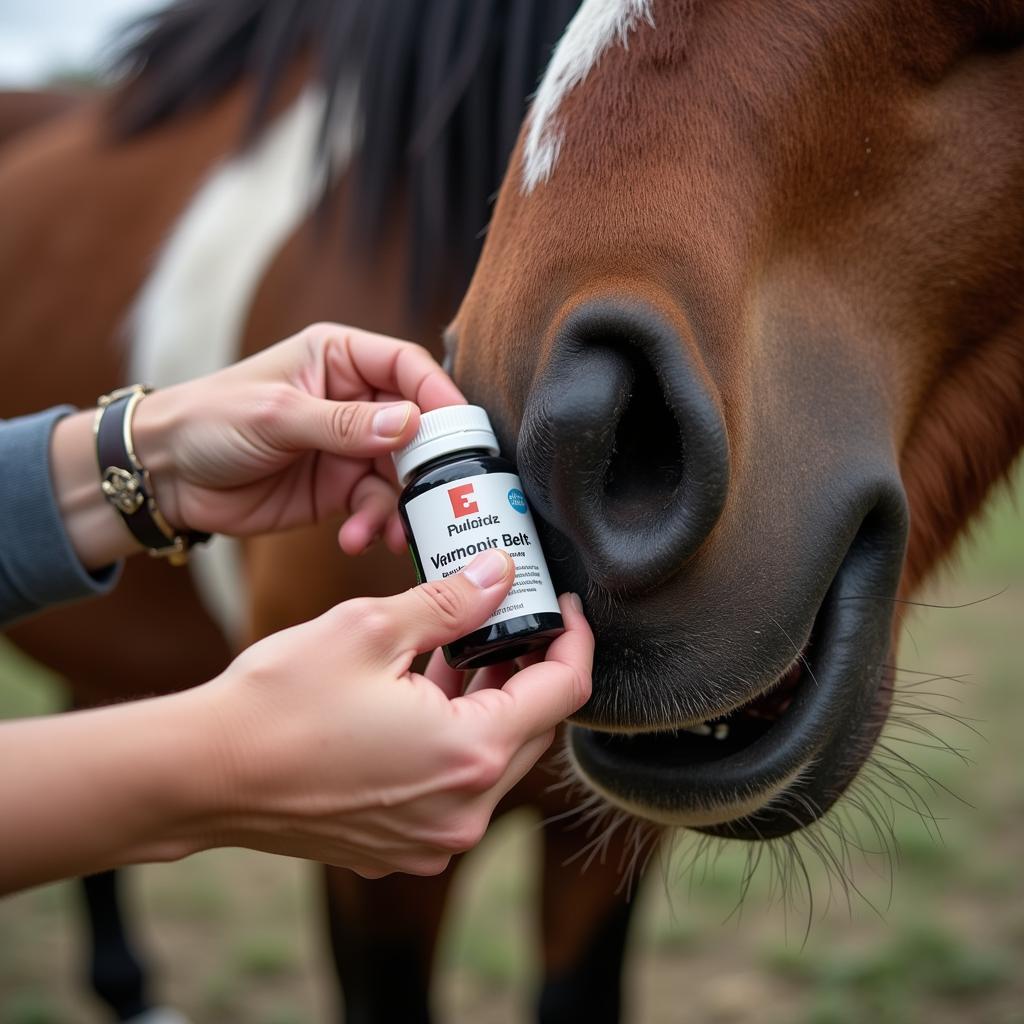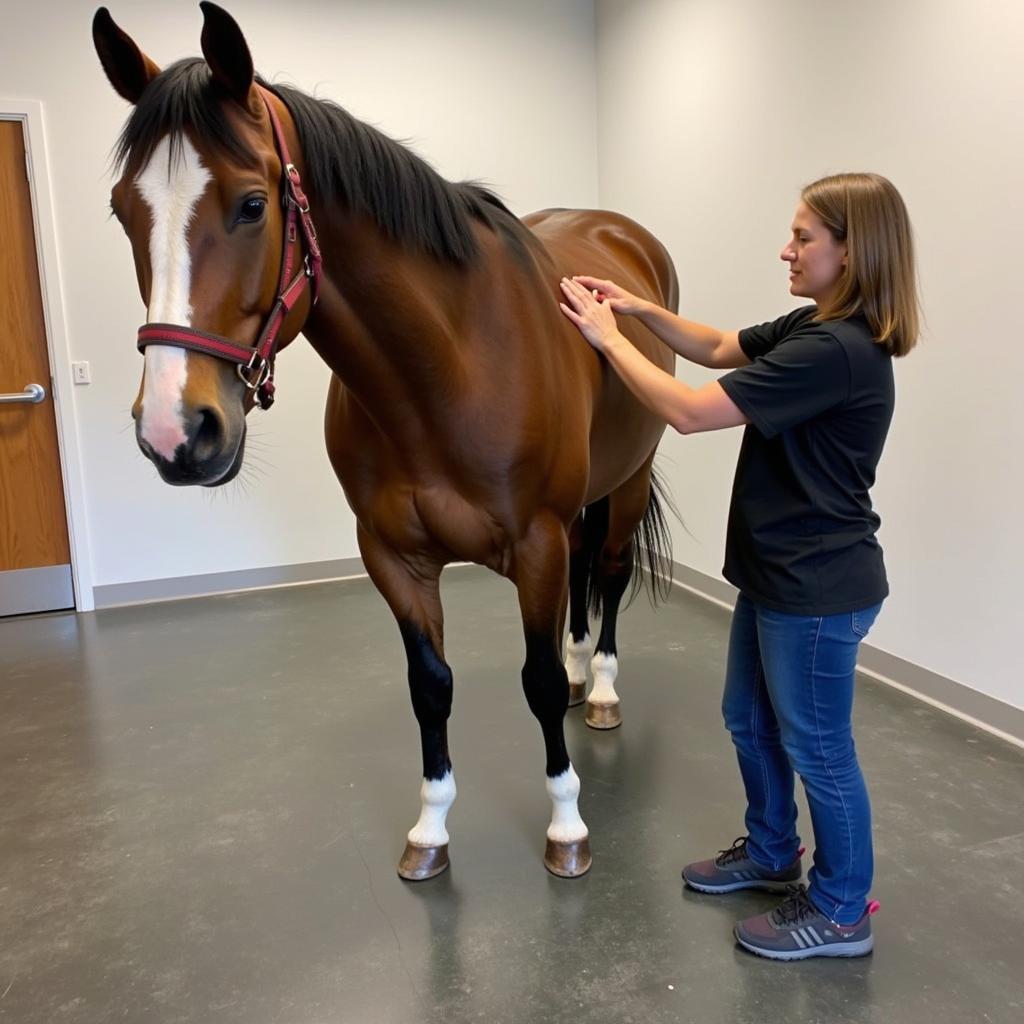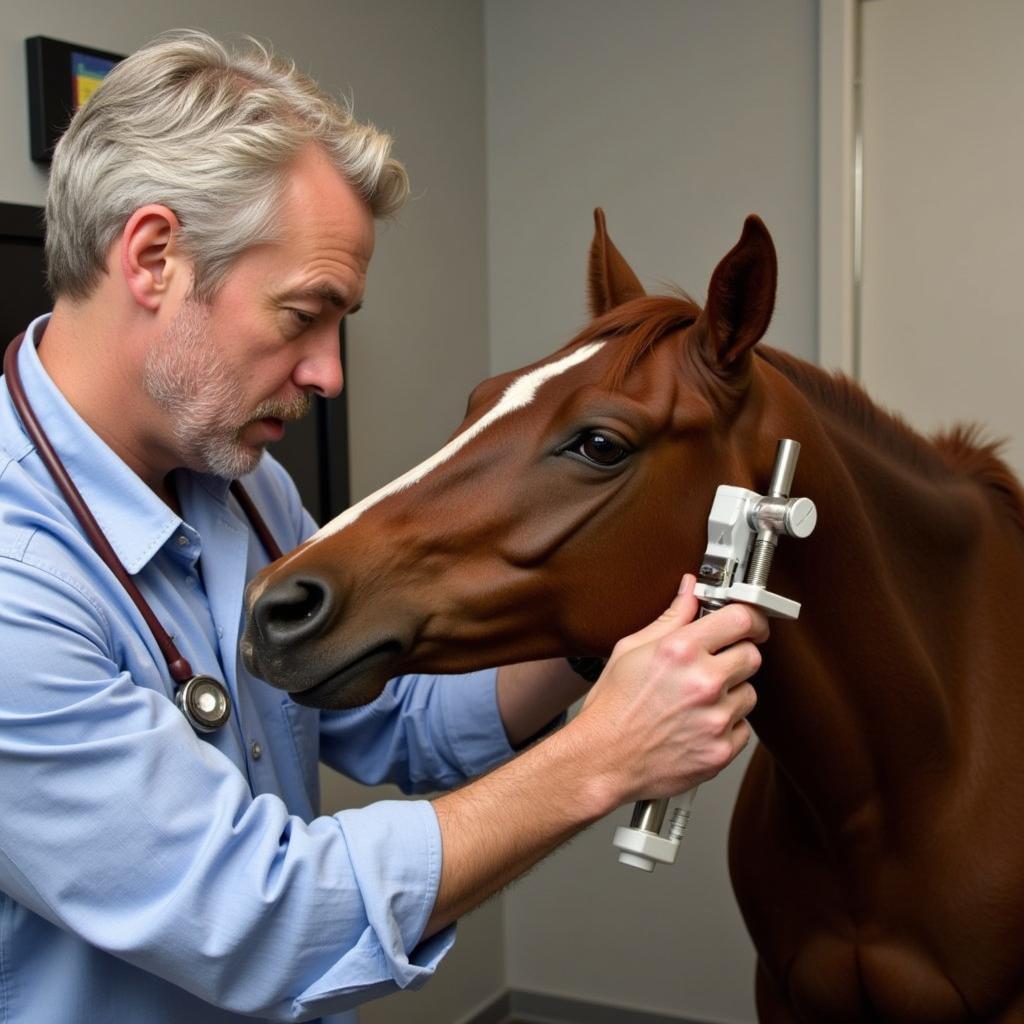Vitamin E for horses with Equine Protozoal Myeloencephalitis (EPM) is often discussed as a supportive treatment. This neurological disease, caused by the parasite Sarcocystis neurona, can have devastating effects on a horse’s coordination, balance, and overall health. Understanding the role of vitamin E in EPM management is crucial for horse owners.
Equine Protozoal Myeloencephalitis (EPM) is a debilitating neurological disease that affects horses. While there is no cure for EPM, various treatment options are available, and vitamin E often plays a supportive role. Many horse owners are curious about the connection between vitamin E and EPM, and this article aims to provide a comprehensive overview of the subject. It’s important to consult with a veterinarian for an accurate diagnosis and treatment plan tailored to your horse’s specific needs. This article will delve deeper into the potential benefits, dosages, and considerations for using vitamin E in horses affected by EPM. After this opening, let’s discuss the nervous system in a horse.
nervous system in a horse
Understanding EPM and its Effects
EPM is caused by the parasite Sarcocystis neurona. This parasite can affect the horse’s central nervous system, leading to a range of neurological symptoms. These symptoms can vary widely, making diagnosis challenging. Some common signs include ataxia (incoordination), muscle atrophy, weakness, and behavioral changes.
How is EPM Diagnosed?
Diagnosing EPM can be complex, often involving a combination of physical examination, neurological assessment, and laboratory tests. Veterinarians may perform blood tests to detect antibodies to S. neurona. However, a positive antibody test doesn’t always confirm active EPM, as some horses may have been exposed to the parasite without developing the disease.
The Role of Vitamin E in EPM Management
Vitamin E is a powerful antioxidant that plays a vital role in protecting cell membranes from damage. In horses with EPM, the nervous system is under attack, and oxidative stress can contribute to further damage. Supplementing with vitamin E can help combat this oxidative stress and support neurological function.
Why is Vitamin E Important for Horses with EPM?
Vitamin E deficiency can exacerbate neurological problems. While vitamin E is not a cure for EPM, it can be a valuable part of a comprehensive treatment plan. It is often used in conjunction with antiprotozoal medications to manage the disease and support the horse’s overall health.
 Vitamin E Supplementation for Horses with EPM
Vitamin E Supplementation for Horses with EPM
Dosage and Administration of Vitamin E for Horses with EPM
The appropriate dosage of Vitamin E For Horses With Epm will vary depending on the severity of the disease and the individual horse’s needs. It’s essential to consult with a veterinarian to determine the correct dosage for your horse. Overdosing on vitamin E can be harmful, so it’s crucial to follow your veterinarian’s recommendations carefully.
How to Administer Vitamin E to Horses
Vitamin E for horses is available in various forms, including oral supplements, injectable formulations, and feed additives. Your veterinarian can advise on the best method of administration based on your horse’s condition and preferences. Some horses may readily accept oral supplements, while others may require injections.
Other Supportive Therapies for EPM
In addition to vitamin E, other supportive therapies may be beneficial for horses with EPM. These may include physical therapy, acupuncture, and chiropractic care. These therapies can help improve muscle function, reduce pain, and enhance the horse’s overall well-being. If a horse is experiencing limping, it’s essential to address the underlying cause.
horse limping
 Horse with EPM Undergoing Physical Therapy
Horse with EPM Undergoing Physical Therapy
“Early diagnosis and prompt treatment are crucial for managing EPM effectively,” advises Dr. Sarah Miller, DVM, a renowned equine neurologist. “Vitamin E, while not a cure, can be a valuable tool in supporting neurological function and overall health in affected horses.”
Monitoring and Long-Term Management of EPM
EPM is a chronic disease that requires ongoing management. Regular monitoring by a veterinarian is essential to assess the horse’s progress and adjust the treatment plan as needed. Long-term management may involve continued antiprotozoal medications, vitamin E supplementation, and other supportive therapies.
“While EPM can be a challenging disease to manage, with appropriate treatment and supportive care, many horses can experience significant improvement in their quality of life,” states Dr. Michael Evans, PhD, an equine nutrition specialist. “Providing adequate vitamin E is just one piece of the puzzle, but it can make a significant difference in the horse’s overall health and well-being.”
 Veterinarian Examining a Horse with EPM
Veterinarian Examining a Horse with EPM
Conclusion
Vitamin E for horses with EPM can be a beneficial part of a comprehensive treatment strategy. While it is not a cure, it can support neurological function, reduce oxidative stress, and improve the horse’s overall health. Working closely with a veterinarian to determine the appropriate dosage and monitor the horse’s progress is essential for effective EPM management.
FAQ
- Can vitamin E cure EPM? No, vitamin E is not a cure for EPM. It’s a supportive therapy used to manage the disease.
- What is the correct dosage of vitamin E for horses with EPM? Consult your veterinarian for the appropriate dosage.
- What are the symptoms of EPM in horses? Symptoms vary, but common signs include ataxia, muscle atrophy, weakness, and behavioral changes.
- How is EPM diagnosed? Diagnosis involves physical exams, neurological assessments, and blood tests.
- What other supportive therapies are available for horses with EPM? Physical therapy, acupuncture, and chiropractic care can be beneficial.
- Is EPM contagious? No, EPM is not directly contagious between horses.
- What is the prognosis for horses with EPM? With proper management, many horses can improve significantly.
Situations where questions about Vitamin E for horses with EPM arise:
- Noticing neurological symptoms: When a horse begins showing signs of neurological issues, owners often research potential causes and treatments, including vitamin E.
- Veterinary diagnosis: After receiving an EPM diagnosis, owners will likely ask their vet about supportive therapies like vitamin E.
- Researching treatment options: Horse owners proactively seek information about EPM management and the role of vitamin E.
- Monitoring progress: Owners want to know how vitamin E contributes to their horse’s recovery and overall health.
Further Reading and Resources
You might also be interested in learning more about the nervous system in a horse or understanding what causes horse limping.
Contact Us
For any questions or assistance regarding your horse’s health, please contact us: Phone: 0772127271, Email: [email protected] or visit us at QGM2+WX2, Vị Trung, Vị Thuỷ, Hậu Giang, Việt Nam. Our customer service team is available 24/7.